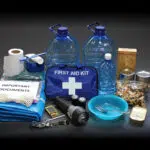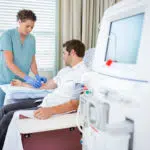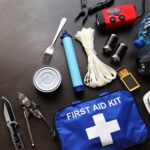National Food Safety Education Month is in September. It is a great awareness movement to educate oneself and others about food safety and about preventing food poisoning. Did you know that there are a lot more foodborne illnesses than you can think of? According to medical professionals, there are more than 250 foodborne diseases, all of which can be traced back to three categories of hazards: biological, chemical, and physical. This is a great time for you to read up on food safety and keep your house safe from deadly foodborne illnesses.
History of National Food Safety Education Month
You are what you eat. Poorly-prepared foods are prime hosts for bacteria, viruses, and parasites. Eating germ-infested food means increasing your risk of foodborne illnesses. Everyone is susceptible to foodborne illness and anyone who eats contaminated food can contract a foodborne illness. Eating contaminated food gives the illness direct access to the stomach. This is why some of us experience diarrhea, vomiting, and dehydration when we have foodborne illnesses.
Technically, germs are excellent at being everywhere all the time. So, when we prepare food, we need to be sure to wash our hands, the kitchen, the utensils as well as the food ingredients if possible. Bacteria and germs are not the only dangerous elements; food contaminated with heavy metals or with naturally occurring toxins can also cause long-term health problems, including cancer and neurological disorders.
If you’re a homemaker, you can easily agree that a clean kitchen is a major line of defense between your family and the common cold, flu, food poisoning, and other food-related illnesses. Every household must ensure food safety, especially if there are children under five years old, pregnant women, adults over 65 years, or anyone with medical conditions. So, as consumers, we must be vigilant about food safety and be educated on how to handle food safely.
National Food Safety Education Month timeline
The first case of known foodborne illness is documented.
The government of the United States of America passes the first food safety law.
President Lincoln forms the U.S. Department of Agriculture (U.S.D.A.).
The U.S.D.A. Division of Chemistry becomes the Food and Drug Administration (F.D.A.).
National Food Safety Education Month FAQs
How to clean our hands properly?
You need to wash your hands properly before eating to stay away from diseases. Start by washing front and back, between fingers, and under fingernails in clean soapy water for at least 20 seconds.
What are the four steps of food safety?
According to the C.D.C., you need to clean your hands, separate raw products from other foods, cook foods to their specified temperature, and chill foods promptly to prevent foodborne illnesses.
Why is food safety important?
Foodborne illnesses place a burden on public health and healthcare costs and contribute to them significantly.
How to Observe National Food Safety Education Month
Educate others
The best thing you can do to celebrate National Food Safety Education Month is by spreading awareness about food safety and good food habits. You can talk to your friends, family, and colleagues.
Clean your food
One of the impactful ways in which you can take part in National Food Safety Education Month is by starting to clean your food. Be it fresh tomatoes, avocadoes, or apples, wash them before you eat them.
Share your story
If you’re someone who has some experience or knowledge about food safety, you can share your story as well as the dos and don’ts of food safety through social media and let the world know.
5 Interesting Facts About Food Safety
America suffers a lot
On average, one in six Americans falls sick every year from eating contaminated food.
Freezing foods can help
Freezing foods slow the growth of harmful bacteria and are a great way to preserve food.
Unwashed produce is fresh with germs
Even the high-priced, farm-fresh vegetables contain germs that need to be washed away.
Globalization makes food safety complex
Globalization of food production can complicate foodborne disease outbreak investigation.
You can use a thermometer
You can use a food thermometer to ensure your food is cooked properly to kill bacteria.
Why National Food Safety Education Month is Important
It emphasizes the importance of food hygiene
National Food Safety Education Month is much-needed to emphasize the need for consumers’ knowledge of food safety practices. This helps us make informed and wise food choices.
It is a shared responsibility
Food safety is a shared responsibility among consumers, governments, industry, producers, and academia. So, the world as a whole has a role to play in keeping everyone safe.
We can save the economy too
Food contamination affects more than just public health. It can undermine food export, tourism, livelihoods of food handlers, and economic development. So, by ensuring food safety, we save the economy too.
National Food Safety Education Month dates
| Year | Date | Day |
|---|---|---|
| 2024 | September 1 | Sunday |
| 2025 | September 1 | Monday |
| 2026 | September 1 | Tuesday |
| 2027 | September 1 | Wednesday |
| 2028 | September 1 | Friday |
























































































